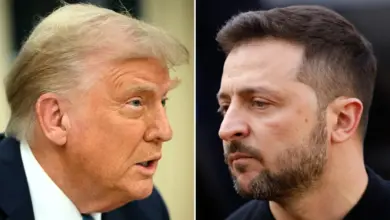Long misused as just another tool to bolster the image of the old regime abroad, the Foreign Ministry is still trying to carve out its role in the post-Mubarak era, having been a vehicle to carry out foreign policy rather than help determine and influence it.
Ever since a short but popular stint by Nabil al-Araby — now head of the Arab League — the ministry has been led by Mohamed Kamel Amr, who remains in his post after the military-led transition and into the presidency of Mohamed Morsy.
Mohamed Abdel-Salam, a regional expert at Al-Ahram Center for Political and Strategic Studies and former editor of Al-Siyasi al-Dawlia (Foreign Policy) newspaper told Egypt Independent, “It has to be more independent. The Foreign Ministry’s role has been marginalized. We have a new state and so the old ties have to change, our alliances have to change. Take the Syrian events for example: Mubarak would have backed the Assad regime, but the new state is backing the opposition.”
The ministry’s role returned to the public consciousness after the ambassadorial appointments last month, which shed some light on the machinations inside the ministry.
Egypt Independent spoke to two sources from within the ministry about its current and former workings, whose names have been withheld at their request.
The first foreign ministry source says, “I believe that there has not been much change in two particular aspects: the first is the day to day machinations of the ministry — the flow of information, hiring and posting, the way the bread is buttered and the eggs are scrambled. This has to do with the fact that the bulk of the ministry’s personnel are still the same and they have been accustomed to a certain way of doing business.”
“The second is the fact that the ministry remains an implementer, rather than an instigator, of a foreign policy devised in other national institutions — namely the presidency and the security apparatuses,” he continues. “Ministers both before and after the revolution — Araby notwithstanding which is perhaps why he was quickly ousted — contented themselves with being aides to the wishes and whims of those whom they thought held the keys to their survival in their positions. I see little changing there.”
The second foreign ministry source says the ministry “is still suffering from the traditionally predominant managerial diseases of bureaucracy, groundless compliments, anti-revolution/change administration and hypocrisy. The level of fiscal corruption reduced substantially right after the revolution, yet still exists. Actually, internal attempts to rectify the evaluation system, to make it based on competence and merit instead of connections and submission, have been undertaken. For example, most of the junior revolutionary diplomats have been posted to key missions.”
“However,” he says, “the ministry requires a huge purification process that must begin as soon as possible.”
Latest appointments
The chief appointment in the latest installment of the ambassadorial merry-go-round is a new ambassador to the US, Mohamed Tawfik, who was previously the ambassador to Lebanon. A former foreign ministry diplomat, Ahmed Ragab, told Egypt Independent that Tawfik is respected within the ministry and was “an expert in demilitarization in Geneva.”
The second source also speaks glowingly of Tawfik, saying that “all personal views and feedback coming from a variety of our colleagues have been quite positive, claiming that he has a decent character and a professional mentality.”
Other appointments were more difficult however, with the Vatican refusing the appointment of Ismail Khairalla, an alleged Mubarak loyalist, to the post in the Holy See. The second source says, “It is said that Germany has also refused to accredit him previously, which indicates that there is a unified European stance not to approve Mubarak’s men on their soil as Egyptian diplomatic envoys anymore.”
“In the second half of 2011, during the preparatory phase of the latest heads of mission assignments to the Egyptian embassies & consulates abroad, the Egyptian revolutionary diplomats as well as all other relevant groups at the Foreign Ministry had been expecting that the old guards of the ministry — who are strongly affiliated to the previous regime and considered an integral part of Mubarak’s corrupt system — would get high-profile and vital postings abroad,” the source continues. “Although there has been no structural process for the cleansing of Mubarak’s men, we were surprised to discover that most of them have been assigned to [minor] capitals, such as Brasilia and the Vatican.”
The first source, however, is wary about these moves and whether this would continue in the future. “True, for example, the last round of postings were assigned in a way that minimized disgruntlement among the ranks of diplomats as they were not marred by excessive nepotism,” he says. “However it is still too early to say whether these changes will be institutionalized in the long run, or if they are merely a one-time fluke brought about by a transient post-revolutionary fervor.”
Pre-revolution era
The Foreign Ministry reached its nadir under Mubarak’s last Foreign Minister Ahmed Aboul Gheit. It bounced from crisis to crisis, unable to smooth over diplomatic spats with Iran, or the discontent of the Nile Basin countries over Nile water rights, the first issue Araby attempted to tackle when he assumed the post after Mubarak’s ouster.
Rather, the ministry was appropriated for other purposes. “The ministry was previously occupied with burnishing the image of the previous president and his prodigal son [Gamal Mubarak] abroad. Large amounts of money were paid to lobbyists to defend the country’s image in Congress or in the US media. Resources were also wastefully spent on many a grand hoopla; international conferences organized at home or extravagant foreign visits abroad that were only meant to buttress the credentials of the regime,” says the first source.
Top officials in the ministry blacklisted younger aides who were supportive of the revolutionary protests. According to the second source, “During Aboul Gheit’s term, it was just another reflection of the unprecedented malfunction of the entire Egyptian state together with the failure of all successive governments for more than three decades, which paved the road for the great 2011 revolution.”
In fact,” he adds, “during the 18 days of the uprising, Aboul Gheit and his close circle had formulated a blacklist of diplomats, overwhelmingly young ones from both genders, who actively participated in the revolution whether via electronic social-networking — Facebook, Youtube, Twitter, etc. — or through personal involvement in street demonstrations and the Tahrir protests, so as to punish them afterwards. However, immediately upon the ousting of Mubarak, all these punitive measures were abandoned by Aboul Gheit and his reactionary companions.”
Positive changes
That being said, the Foreign Ministry officials did note some positive changes within the ministry since the revolution, chief amongst them sensitivity to public opinion, which was often overlooked in the past.
“Today the ministry seems more sensitive to what is being said about it in the national press and Parliament [while it was in session]. The ministry’s spokesperson has devoted much of his attention to replying to recriminations against the ministry made by local newspapers or political parties, and the current minister made it a point of principle that assistant ministers and deputy assistant ministers always attended parliamentary sessions or committee meetings dealing with ministry-related issues,” say the first source.
“In the post-revolutionary period the ministry is undoubtedly more sensitive to what Egyptians think of it, as opposed to what foreigners do,” he adds. “As a consequence, the ministry is also spending more time on issues that matter more to public opinion. Hence its devotion, for example, to issues such as compensation for Egyptians who had worked in Iraq, or spending more money on projects within the Nile Basin countries.”
Going forward
And while there have undoubtedly been some positive changes within the ministry, those within it still feel there is still a long road ahead.
The first source says, “Undoubtedly, the current status of the ministry and the country’s foreign policy leaves much to be desired. Part of this has to do with those working in it, myself included of course. At times we seem to lack the imagination necessary for the new era that would enable us to do more with what little we have, and to act on issues of strategic importance in ways that distance us from the old ways.”
“But the Ministry’s shortcomings also have to do with resources,” he adds. “There is little leverage we can pull without having the money to spend. Yes, more could be done with less, but there is hardly any way the ministry will be able to compete for influence in, say, Africa with other middle-ranking powers such as Iran, Saudi Arabia, Turkey, India or Israel unless we can allocate more resources.”
There is also the question of what the new government intends to do with the ministry.
“The question is what would the current regime, with its particular Muslim Brotherhood dominated setup, want to do with any additional resources provided to the ministry?” the first source asks. “Would it want to use them to increase influence in Africa and other areas of strategic importance, would it want to use them to alleviate the struggle of Egyptians abroad, especially in the Gulf, who often suffer dire judicial, financial or health problems, or will it return to the old ways and waste resources on self-serving extravaganzas that merely polish its image abroad?”
Says the second source, “All in all, there is a very long way to go in order to achieve ultimate restoration of the Egyptian Foreign Ministry and its central diplomatic role.”




